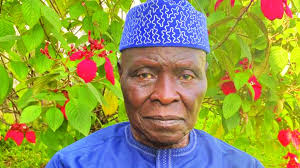
Daniel Otera
Nigeria has lost yet another prominent figure in its chequered political history. Chief Cornelius Olatunji Adebayo, a former senator, Governor of Kwara State, and Minister of Communications, has died at the age of 84. His passing in Abuja on Wednesday, 25 June, was confirmed by his family in a public statement.
Born on 24 February 1941, Adebayo’s public life intersected with nearly every major phase of Nigeria’s post-independence evolution from military regimes and civilian transitions to pro-democracy struggles and democratic administrations.
According to the statement by his eldest son, Oluwasegun Adebayo, the former governor died in the early hours of the day. “With profound sadness but gratitude to God, we announce the passing of our father and grandfather, Chief Cornelius Olatunji Adebayo,” the family noted, adding that funeral arrangements will be announced later.
Adebayo began his career as a university lecturer at the University of Ife (now Obafemi Awolowo University), before moving into politics during a time of renewed hope following Nigeria’s return to civil rule in 1979. He was appointed Commissioner for Education in Kwara State between 1975 and 1978 under the military regime. Shortly thereafter, he emerged as a senator under the Unity Party of Nigeria (UPN) when civilian governance resumed.

In 1983, he made history by becoming the second elected Governor of Kwara State after defeating the incumbent, Adamu Attah of the National Party of Nigeria (NPN). However, Adebayo’s governorship lasted only three months. The military coup led by General Muhammadu Buhari on 31 December 1983 abruptly ended the Second Republic and dissolved all democratic institutions, including state governments.
Following the annulment of the 12 June 1993 presidential election widely regarded as Nigeria’s freest and fairest Cornelius Adebayo aligned with the National Democratic Coalition (NADECO), a prominent pro-democracy movement that opposed the military regime of General Sani Abacha.
His involvement came at considerable personal risk. On 31 May 1995, following a bomb explosion in Ilorin, Kwara State, Adebayo was arrested and interrogated by police alongside several other members of NADECO. Human rights organisations at the time, including Human Rights Watch, documented widespread arrests and detentions without trial targeting activists, politicians, and opposition figures. The clampdown formed part of a broader attempt by the junta to silence dissent in the face of increasing domestic and international criticism.
By 1996, with credible threats to his safety mounting, Adebayo fled Nigeria and sought political asylum in Canada. His departure formed part of a wider exodus of pro-democracy advocates who were either forced underground or into exile as the military regime intensified its suppression of opposition voices.
Adebayo remained in exile until Nigeria’s return to civilian rule in 1999. Under the new democratic dispensation led by President Olusegun Obasanjo, he was appointed Minister of Communications in 2003. He served in the federal cabinet until 2006, a period that coincided with significant reforms in the telecommunications sector. During this time, mobile connectivity in Nigeria expanded dramatically, laying the foundation for the country’s emerging digital economy.
While in office, Nigeria’s telecommunications sector experienced rapid growth. According to figures published by the Nigerian Communications Commission (NCC), the total number of connected telephone lines both mobile and fixed rose to approximately 27.9 million by August 2006, up from under 10 million in 2003.
This expansion marked a foundational shift in the country’s digital infrastructure, setting the stage for the exponential rise of mobile connectivity and internet access in subsequent years. Though not solely credited to any one minister, Adebayo’s tenure coincided with some of the most impactful structural changes in Nigeria’s communications landscape.
Adebayo hailed from Igbaja in the Ifelodun Local Government Area, with ancestral roots in Oke-Onigbin in Isin LGA of Kwara State. His political journey was shaped not only by national events but also by local dynamics in the North Central state. His victory in the 1983 governorship election reflected widespread dissatisfaction with the ruling party at the time, and his brief leadership remains part of Kwara’s political history.
The breadth of his career spanning academia, state and federal governance, and pro-democracy activism places Adebayo among a rare class of Nigerian public servants whose roles were not defined by partisanship alone, but by the broader currents of the nation’s democratic struggles.
Chief Cornelius Adebayo’s death marks the end of a chapter in Nigeria’s public life, a chapter that bore witness to transitions, trials, resistance, and reform. With his passing, Nigeria loses not just a statesman, but a bridge to critical periods in the country’s political evolution.
In an era where political commitment is often transient, Adebayo’s life serves as a reminder of the cost of principled opposition, the fragility of democracy, and the enduring power of civic courage.
